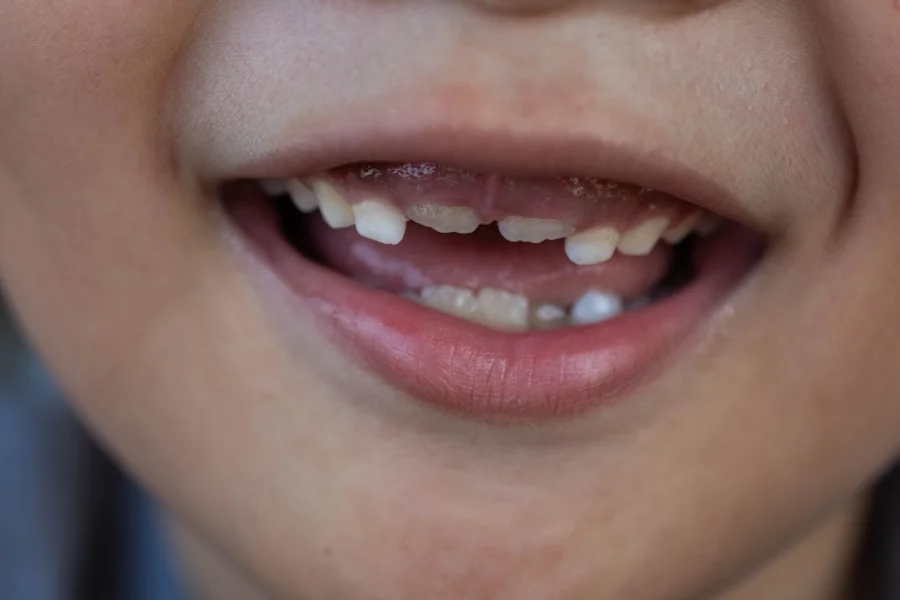FDA Proposes Ban: Kids’ Fluoride Supplements
A significant change in pediatric dental care may be on the horizon as the U.S. Food and Drug Administration (FDA) is reportedly moving to remove prescription fluoride supplements for children from the market.

FDA Proposes Ban: Kids’ Fluoride Supplements
This initiative, said to be occurring under the leadership of Health Secretary Robert F. Kennedy Jr., targets products like fluoride tablets, drops, and lozenges specifically prescribed to prevent cavities in young patients.
The proposed action, as outlined in a recent announcement from the FDA, indicates plans to conduct a safety review and take “appropriate action” to effectively remove these products by October 31st. Alongside this, the Department of Health and Human Services (HHS) intends to issue new guidance on “best practices for dental hygiene in children” that reportedly focus on methods deemed “feasible, effective and do not alter gut health.”
Who Uses Prescription Fluoride Supplements?
It’s important to understand that these prescription fluoride supplements are not recommended for all children. According to guidelines from major health bodies like the Centers for Disease Control and Prevention (CDC) and the U.S. Preventive Services Task Force, along with professional organizations such as the American Academy of Pediatrics (AAP), the American Academy of Pediatric Dentistry (AAPD), and the American Dental Association (ADA), low doses of fluoride supplements are typically advised only for a limited group of children.
This group specifically includes children who reside in communities where the public water supply is not fluoridated and who are also identified as being at high risk of developing dental cavities. These supplements are only available through a prescription issued by a qualified dentist or pediatrician after assessing the child’s individual needs and risk factors.
The FDA’s Stated Concerns
The rationale provided by the FDA for this potential ban centers on concerns regarding the impact of ingested fluoride on the human gut microbiome. The official announcement claimed that “Ingested fluoride has been shown to alter the gut microbiome, which is of magnified concern given the early development of the gut microbiome in childhood.” This statement suggests a potential risk to children’s health through changes in the complex community of microorganisms residing in the digestive tract.
FDA Commissioner Dr. Marty Makary was quoted stating, “The best way to prevent cavities in children is by avoiding excessive sugar intake and good dental hygiene, not by altering a child’s microbiome. When it comes to children, we should err on the side of safety.” This position emphasizes preventive measures like diet and brushing over supplementation based on the cited microbiome concerns.
Contradicting Established Medical Consensus
The FDA’s move directly contradicts years of established research and the consensus recommendations from numerous leading professional medical and dental organizations. The CDC, USPSTF, AAP, AAPD, and ADA all support the judicious use of low-dose fluoride supplements for targeted high-risk pediatric populations in non-fluoridated areas as a safe and effective method for preventing tooth decay.
Dr. Paul Casamassimo, chief policy officer for the American Academy of Pediatric Dentistry, expressed strong concerns about the proposed ban, stating it “removes a choice” and would “ban a treatment that is in the best interest of a patient, as determined by a trained, licensed health professional.” He highlighted that these supplements represent a key clinical tool for dental professionals.
Impact on Dental Professionals and Child Oral Health
For dentists and pediatricians, the removal of prescription fluoride supplements would mean losing a critical preventive tool specifically for vulnerable children. In areas without fluoridated water, these supplements serve as a means to provide systemic fluoride exposure during the crucial years of tooth development, strengthening enamel and making teeth more resistant to decay.
Dr. Casamassimo likened the situation to having a known medicine for a disease (cavities) but being prohibited from prescribing it, underscoring the potential negative impact on managing tooth decay in high-risk children.
This action is viewed by some as particularly concerning when considered alongside broader efforts, including legislative moves in various states, aimed at banning or removing fluoride from public water systems.
The cumulative effect of limiting both community water fluoridation and targeted prescription supplements could have significant implications for the oral health of children across the country, particularly in underserved areas or those without fluoridated water infrastructure.
The Gut Microbiome Claim: Examining the Evidence
The FDA’s rationale heavily relies on the assertion that ingested fluoride alters the gut microbiome in a concerning way. However, a review of the scientific literature cited by the FDA in its announcement suggests the evidence is far from conclusive and potentially misinterpreted.
The two literature reviews referenced by the FDA both indicate that while fluoride exposure likely impacts the microbiome, the exact nature and extent of this effect remain uncertain. Crucially, one paper, from researchers in Ireland, suggested that “the use of fluoride containing oral hygiene products may have beneficial effects on the oral microbiome regarding caries prevention.”
The second paper, from the UK, found that while high doses of fluoride might be detrimental to the microbiome, low doses appeared to have either harmless or even positive effects.
Both studies emphasized that the existing evidence is limited and called for more research in this area. This nuance in the cited studies appears to contrast with the FDA’s definitive claim of a “concerning” alteration, especially regarding low-dose prescription supplements.
Broader Context and Future Outlook
The proposed ban exists within a larger public health debate surrounding fluoride. While community water fluoridation is endorsed by every major U.S. public health organization as one of the ten great public health achievements of the 20th century due to its effectiveness in reducing cavities, it remains a subject of contention for some groups.
Concerns about potential harms, though largely unsubstantiated at recommended low exposure levels, persist. High levels of fluoride exposure are known to cause dental fluorosis (mottling or discoloration of tooth enamel) and have been tentatively linked in some studies to lower IQ, but these risks are associated with much higher intake levels than those from optimally fluoridated water or low-dose prescription supplements.
The involvement of Health Secretary Robert F. Kennedy Jr., a vocal critic of fluoride, is seen by observers as a driving force behind this action, potentially aligning with his broader skepticism towards public health interventions involving fluoride.
The coming months leading up to the October 31st target date will likely see continued debate and scientific review. The FDA’s planned safety review will be critical, and its findings will be closely scrutinized by the dental and medical communities.
What This Could Mean for Parents
For parents whose children currently receive or might potentially benefit from prescription fluoride supplements, this development introduces uncertainty. It is essential for parents to discuss their child’s specific oral health needs and fluoride exposure with their pediatrician or pediatric dentist.
While the availability of prescription supplements may change, fundamental oral hygiene practices—such as brushing twice daily with fluoride toothpaste (in appropriate amounts for age), flossing, and limiting sugar intake—remain the cornerstones of cavity prevention. Regardless of the outcome of the FDA’s proposed ban, maintaining excellent at-home care and regular dental check-ups will remain paramount for protecting children’s smiles.





